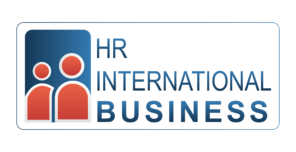All Diplomas Courses
What you'll learn
At The End of The Training Course, The Trainees Will Be Able To:
• You will Learn All Knowledge Areas of the HR Functions and the relationships of the the HR Strategies with the organization.
• Interpret and apply information related to general business environment and industry best practices
• Determine the significance of data for recommending organizational strategies (for example: attrition rates, diversity in hiring, time to hire, time to fill, ROI, success of training)
• Execute the talent acquisition lifecycle (for example: interviews, extending offers, background checks, negotiation).
• Implement and evaluate career development and training programs (for example: career pathing, management training, mentorship)
• Manage compensation-related information and support payroll issue resolution
• Analyze functional effectiveness at each stage of the employee lifecycle (for example: hiring, onboarding, development, retention, exit process) and identify alternate approaches as needed
• Understanding what Is Human Resource Management and the New HR Roles in the organizations
• Understanding Why Is Human Resource Management Important to growing the organization
• Studding Human Resource Management Responsibilities and staff roles.
• You will be able to build Work force plans and to select the best candidates for vacancies
• Determine the significance of data for recommending organizational strategies (for example: attrition rates, diversity in hiring, time to hire, time to fill, ROI, success of training)
• Execute the talent acquisition lifecycle (for example: interviews, extending offers, background checks, negotiation).
• Implement benefit programs (for example: health plan, retirement plan, employee assistance plan, other insurance)
• Analyze functional effectiveness at each stage of the employee lifecycle (for example: hiring, onboarding, development, retention, exit process) and identify alternate approaches as needed
• Promote organizational policies and procedures (for example: employee handbook, SOPs, time and attendance, expenses)
• Manage compensation-related information and support payroll issue resolution
• Understand ethical concerns related to employee and labor relations
• Evaluate and forecast organizational needs throughout the business cycle to create or develop workforce plans (for example: corporate restructuring, workforce expansion, or reduction)
• Develop and evaluate training strategies (for example: modes of delivery, timing, content) to increase individual and organizational effectiveness
• Analyze and evaluate compensation strategies (for example: philosophy, classification, direct, indirect, incentives, bonuses, equity, executive compensation) that attract, reward, and retain talent



